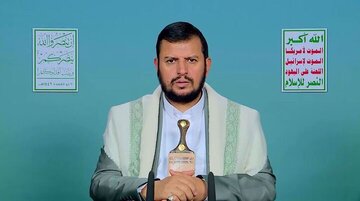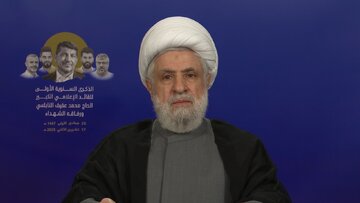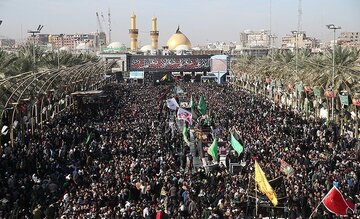Ahlul Bayt News Agency (ABNA.ir), HOLY CITY OF QOM, Iran: Ayatollah Al-Uzma Syed Muhammad Mufti al-Shia Moosavi Ardbaili passed away on Wednesday in holy City of Qum in Iran. He was 82. The late Ayatollah was considered amongst the famous religious teachers and he authored dozens of religious books and translated hundreds of books.
There will be closed holiday in religious Madaris during these days. A statement issued from the headquarters of the Maktab-e-Tashih says that Ayatollah Mufti Al-Shia Urdbaili spent all his life in serving the religion. The gap created by his demise could not be filled.
His funeral ceremony will be start today (20.5.2010) at 17:30 from Imam Hasan Askari (as) mosque to holy shrine of Hadrat Masumah (sa).
Memoir of Ayatullah Mufti Ash-Shia Al-Mousavi
Translated by Ghulam Shabbir on the direction of Allama Syed Hussain Muqqadasi
In the name of Allah the merciful, the beneficent
Praise be to Allah who created pure and perfect man in between knowledge and those who possess knowledge, by his generosity regarded scholars the end of hope of hopeful person & on the basis of his justice preferred the pen of one who knows and acts accordingly to the blood of martyrs and termed them as blessings to all of his creatures. He bestowed preference to the memory of those who served for Shariat to the memory of nameless people and gave them all such things, which non-else has ever been given.
I bear witness that Allah is one and there is no partner unto Him; nor is there any god except him.
No doubt Muhammad (PBUH&HP) is His servant and His prophet corroborated by Rooh-al Quds and Aql-e-Kul; one who was the most gentle & consummate man, took pity on all weaklings, poors, indigents, orphans and all other destitutes.
Knowledge is one of such things as has been applauded and appreciated in Islam and Muslims have been urged to attain it. Quran bears many verses in this regard, which stress upon the importance of knowledge, its attainment and applause of scholars.
The creator of universe ordered for deliberation, and prudence, and has eulogized the man of understanding (olulalbab) and not only this but only those who are possessed of knowledge are said to be God-fearing.
As is stated:
“Those of His servants only who are possessed of knowledge fear Allah”
Surah xxxv/xxviii (The originator)
“Say, Are those who know and those who do not know alike? Only the men of understanding are mindful” (The companies/ix, Surah/xxxix)
Likewise several hadiths from Holy prophet (PBUH&HP) and His vicegerents Aaimma Masoomeen (A.S.) have been reported.
Hazrat Imam Jafar Sadiq (A.S.) quotes Holy Prophet (PBUH):
“A learned has such preeminence on adorer as the full moon on fourteenth has on all the stars and no doubt the scholars are heirs of prophets.”
All these hadiths state the significance of knowledge, the dignity and degree of scholars, subordination to them, the patronage of scholars in proclaiming the laws of religion, their being trustee of Allah, the angels spreading wings for them, birds in the sky & fish in water craving mercy for them. Even Imam (A.S) regards scholars as his assistants and attorneys.
He (A.S) states further:
“Among the fuqaha (theologians) one who guards himself against sensuality, concupiscence, refrains from least and greed, is amendable to Lord’s orders; people must follow such theologian.”
Likewise Maktab-i-Ahlebait (school of prophet’s descendants) has never been without the teacher and the student even for a single day. Right from the early days of Islam to this day it has extended the best service to Islam. The conspicuous proof is the emergence of four thousand scholars in various fields of knowledge from the great school of Hazrat Iama Jafar Sadiq (A.S).
The branch of knowledge which has been the most stressed upon and for which people have been urged to attain is Fiqh (Islamic jurisprudence) because in it lies the system and order of this world and the benefit of the world hereafter; as it is the law of Shariat (the divine law) and he who acts upon it is successful both here and hereafter.
Maktab-i-Ahlebait is particular in that there has always been opportunity for Ijtihad i.e. interpretation and reinterpretation of Islamic laws. That is why in every era there emerged unprecedented scholars, the most pious men of the time, ulema and fuqaha (theologians).
This booklet comprises of brief biography of Hazrat Ayatullah al Uzma As-Syed Muhammad Mufti Ash-Shia, Al-Mousavi (Dama Zilluhul Aali) and his family. Further, about his teachers, his own teaching services rendered in Hawza and his general welfare works have been mentioned. May Allah’s graciousness be always with us to write more, in future, on various other aspects of his great personality (Aameen)

Brief Biography
His Good Name
Muhammad-bin-Muhammad Taqi bin Murtaza bin Naqad Ali bin Mir Ali Raza bin Hussain Al-Mousavi. He was born on 10th of Rajab-ul-Murajab 1347 A.H. in Ardbail (known as Dar-ul-Irshad) - a city of Iran.
Ayatullah al Uzma As-Syed Muhammad Taqi Mufti Ash-Shia Ardbaili was his father who died in 1361 A.H. He was considered one of much followed theologians. He was also leader of his city. His Risala-i-Amalia (journal) was published on 18th of Zilhajj 1336 A.H under the title of “Shajara-tut-Taqwa”. The second journal “Zakhirat-ul-Uqba” was published in 1344 A.H. he had been the pupil of Akhund Khurasani, Syed Kazim Yazdi, and Syed Muhammad Isfahani Fasharki.
His Grandfather
His grandfather’s name was Ayatullah al Uzma Syed Murtaza Khalkhali Ardabaili. He too was one of the venerable Maraje Uzzam. On his return from Najaf-i-Ashraf, he laid the foundation of great Hawza-i-Ilmia in Ardbail, which produced several Ulmas. Students, not only from Iran, but also from various other countries like Badkoba, Sherwan, Siliyan, Ierwan, Nakhchwan, Lankran, and Aazarbaijan came to this Hawza to seek knowledge. He was the pupil of Sahib-i-Karamaat and Sheikh Ansari (R.A). He left this world on 1317 A.H.
His respected Uncle
His uncle, Faqih-i-kamil Syed Ahmed Mujtahid, the pupil of Sheikh Hassan Mamqani and Fazil Sharbiani, was one of those precedent theologians who saved their city against the wickedness of enemies.
His second uncle, Syed Musa Faqih Murtazavi who was great worshipper and a pious man, had the degree of Ijtihad (interpretation and reinterpretation of Islamic laws) from great maraje like Ayatullah al Uzma Syed Abu Al-Hassan Isfahani, Muhaqqiq (researcher) Naeeni and Muhaqqiq Iraqi.
His respect worthy mother
She was the daughter of Syed-ul-Ulama As-Syed Baqir Al-Ardbaili Al-Najafi who was awarded ijaza-i-ijtihad (Permission for interpretation and reinterpretation of Islamic laws) by Syed-ul-Ulama great Marje As-shaikh Muhammad Taqi Ash-sherazi in 1335 A.H. He was son of Ayatullah Syed Habib Ullah Al-Athari Ardbaili who was the grandson of Mujtahid-i-Akbar Syed Hussain and nephew of Muhaqqiq Karki al-Aamli. He was Shaikh-ul-Islam in the regime of Sultan Tahmasab Safawi in Ardbail.
His Progeny
The sustainer of the world bestowed him seven sons. Three of them are scholars:
1.Hujjatul-Islam Aaqai Syed Muhammad Taqi (R.A)
2. Hujjatul-Islam Aaqai Al-Haj Syed Muhammad Zaki (R.A)
3. Siqa-tul-Islam Syed Abul Fazl (R.A)
His pedigree
His lineage reaches to Syed Ibrahim Al-Asghar surnamed Al-Murtaza the son of Imam-I-Hamam Musa bin Jafar (A.S) who has been talked about in the books of genealogies.
His dynasty
His family is one of those the most ancient and learned families whose members reside in cities like Najaf-i-Ashraf, Tehran, Ardbail, Khalkhal, Qazween & Rasht. This family has always been exerting for the attainment of knowledge & wisdom. There have been several theologians, scholars, authors & poets in this noble family who have been leading the masses as a prelate (Mujtahid) in their spiritual and worldly problems. This is why the pages of the books of tazkira and rijal are full of their excellence learning & compositions.
His conduct & attentions
In 1361 A.H, on the day of Hazrat Imam Muhammad Taqi (A.S)’s martyrdom, his father departed in Ardbail, who left the whole city in affliction and people arranged Majalis-i-Aaza for forty days and on 40th day much honoured & preferred Ayatullah al uzma Syed Younis Ardbaili attired him the spiritual apparel with his own hands and put Amamah (a religious turban) on his head after which he left for Mash’had Al-Muqqadas.
In 1363 A.H, he performed the duties of imamat in his father’s mosque (which is known as Masjid-i-Bazar & masjid Syed Ahmed) on the consent of his worthy uncle Syed Musa faqih. Although he was quite young yet people used to participate in his Jamat (gathering for prayer) with pleasure and zeal, for his amiable nature and belonging to praise worthy dynasty and the mosque used to fill with Namazis to its full capacity. Not only this but very often people used to take his ablution water as a benediction and solicited him for Dua (prayer); he was of the rank of his ancestors in religious affairs.
He was known for his continence, abstinence & decency in his family and the city where as among the learned (ulama) and the seekers he was famous for the mode of equity and man of wisdom.
Acquisition of knowledge
He showed quick, sharp and brimful mind in the acquisition of knowledge. He got his education of ‘Moqaddemaat’ from distinctive ulmas (teachers) of Ardbail and his father’s pupils. He learnt ‘Rassail’ from Ayatullah Shaikh Ghulam Hussain Gharvi and ‘Makasib’ from his worthy uncle Ayatullah Syed Musa Faqih Murtazavi.
Left for Qum
In 1367 A.H, he left for Hawza-i-ilmia Qum for further education. For Dars-i-Kharij in Fiqh (Islamic jurisprudence) he joined the lectures of Ayatullah al uzma Brojurdi who was delivering his lectures on Salat (prayer) in those days.
For discussion on ‘Baye’ (buying & selling) he took lessons from Ayatullah al uzma Syed Muhammad Hujjat. He participated in the class of Ayatullah al uzma Roohullah al-Musawi Al Khomeini (R.A) for discussion on principles of Fiqh (Islamic jurisprudence). Debate on Taharat (cleanliness) was learnt in the classes of Ayatullah al uzma Syed Muhammad Muhaqqiq Damad (R.A). To have an insight in the enigmas of philosophy, haiyyat & tafseer he attended the bountiful lectures of Allama Syed Muhammad Hussain Tabatabai (R.A), along with this he himself delivered lectures on high level on “Rasa’il”, “Kifaya”, “Makasib” & “Manzooma”.
In summer vacations when he came back in his own country, he used to guide the people & helped them in their religious problems. He was also used to perform Imamat in his ancestral mosque.
Migrated to Najaf-i-Ashraf
Zeal for the acquisition of knowledge did not end and his thirsty nature for knowledge and cognizance led him leave for Najaf-i-Ashraf in 1374 A.H. and he attended the lectures of following chosen, excellent highly esteemed ulamas (scholars) and Maraje Uzzam:
1.Marjae Aaliqadar Ayatullah al uzma Syed Mohsin Hakim (R.A)
2. Marjae Aaliqadar Ayatullah al uzma Syed Mohammad Shahroudi (R.A)
3. Marjae Aaliqadar Ayatullah al uzma Syed Abul Qasim Khoie (R.A)
For quite a long period he attended the lectures of Ayatullah al uzma Sheikh Hussain Hilli (R.A) on Asool (principles) & Fiqh (Islamic jurisprudence) and he sought maximum learning from him. For more than ten years he remained under his guidance and kept on writing his lessons till the day when he was talked of one of the keen pupils of Sheikh Hussain Hilli (R.A). He has compiled a complete lesson of esteemed teacher on Asool (principle)& urwah (path).
In 1388 A.H, after performing Hajj and taking leave of Ayatullah al uzma Sheikh Hussain Hilli (R.A), he started teaching Fiqh & Asool. At the same time he began research and composition.

Back in his country
A delegation of venerable personnels reached in Najaf-i-Ashraf Ardbail in 1379 A.H and requested Marjae Aaliqadar Ayatullah al Uzma Syed Mohsin Hakim to send Aaqae Mufti ush Shia as his attorney to explain divine code of life to the people in Ardbail. Hence, in view of their constraints and requisition Ayatullah al Uzma Hakim (R.A) sent him to Ardbail. However, he never wished that Mufti ush shia should ever leave Najaf-i-Ashraf. Aaqae Mufti ush shia left Najaf-i-Ashraf for Ardbail on 16th of Zeeqaadh 1379 A.H. and arrived on 24th Zilhajj.
As soon as the people came to know of his advent, particularly great ulamas and khutbaas (preachers) they came out at a distance of twelve Farsakh (Miles) to welcome him and gave him a magnificent reception.
In 1380 A.H., when Marjae Aalam-i-Tashayyo Ayatullah al Uzma Brojurdi departed for the world hereafter, people of Aazarbaijan under the guidance of Aaqae Mufti ush shia started to follow Ayatullah al Uzma Syed Mohsin Hakim (R.A) and they always turned to him in all their problems and masail-i-shariat.
After his one and half year stay in Aardbail he went again to Najaf-i-Ashraf to restart his learning activities.
Compositions
He has all the speeches delivered on Asool & Fiqh, which he wrote while attending the lectures of his teachers in Najaf-i-Ashraf and Qum. The detail is as under:
In Hawza-i-Ilmia Qum
The book on bae (Buying & selling) by Hazrat Ayatullah al Uzma Syed Muhammad Hujjat (R.A).
The book on Salat (prayer) by Hazrat Ayatullah al Uzma Syed Agha Hussain Brojurdi (R.A).
The book on Taharat (cleanliness) by Hazrat Ayatullah al Uzma Syed Muhaqqiq Damad (R.A).
He wrote “Mabahis-i-Ilfaz”& discussion on “La jabar wala tafweez bal amar bain al amrain” in Dars-i-Asool by Hazrat Ayatullah al Uzma Syed Roohullah Al-Mousavi Al-Khomeini (R.A).
In Dars-i-Manzooma & Asfar by his great teacher Allama Taba Tabaie (R.A) he wrote his theories as marginal notes in his books.

Hawza-i-Ilmia Najaf-i-Ashraf
“Salat ul Musafir wal Jama’ah” & some important things about Hajj by Hazrat Ayatullah al Uzma Syed Mehmood Shahroodi (R.A).
A complete composition of Asool-i-Fiqh by Hazrat Ayatullah al Uzma Syed Abul Qasim khoie (R.A)
A complete composition of Asool-i-Fiqh by Hazrat Ayatullah al Uzma Sheikh Hussain Hilli (R.A) and “Bae-o-Khiyaraat” in Fiqh, “Taharat” a discussion of urwat-ul-wusqa
A tract on “La Zarar wala Zaraar”
Sharah Kifayah
A treatise on doubted apparel
A Pamphlet about “Ilm-i-ljmali” (Brief knowledge)
Qaida “Iqrar-o-Raza’a” and several other magazines on important discussions along with summaries in a book titled “Fiqh-i-Mabsoot”
This is an argumentative book in which important things of Fiqh have been discussed in the light of Qawaid-i-Asoolia, Quranic verses, sayings of Masumeen (A.S) &




